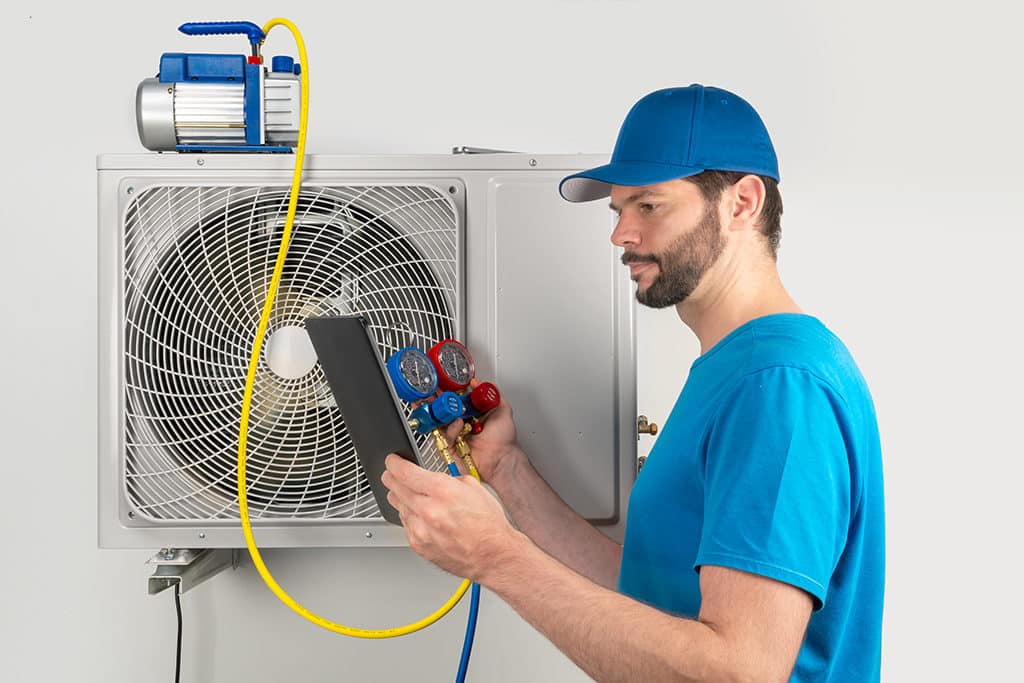Air conditioning is a necessity for modern-day living, particularly in hot and humid climates. Installing or upgrading your air conditioner can make a huge difference in the quality of your living space and its energy efficiency. Installation of an air conditioner is a complex procedure that requires attention to detail and carefully planned planning to attain optimal performance.
One of the most vital aspects of air conditioning installation is choosing the right model for your home. There are various types of air conditioning systems that are available which include central air conditioning, mini-split ductless systems, and window units. Each option has advantages and disadvantages, based on your budget and preferences.
If you’re in search of an energy-efficient and versatile cooling solution, a ductless mini-split unit is a fantastic choice. Contrary to central air conditioning which uses ducts to distribute air throughout your home A mini-split system is comprised of an outdoor unit as well as one or more indoor air handlers connected through a conduit. This type of design permits zoned cooling, meaning you can cool certain areas of your home according to your cooling requirements.

A qualified HVAC technician is essential when it comes to installing mini splits. For the proper installation of mini split systems, a technician with specific expertise is required. This includes proper sizing of the unit, and placing air handlers at the proper locations. A poor installation could result in lower efficiency and performance, a rise in expenses for energy, and the premature failure of equipment.
Maintenance is a crucial component of AC installations. Once your air conditioning system is installed it is essential to ensure regular maintenance to ensure maximum performance and long-term durability. The HVAC technician will conduct regular tune-ups and maintenance, change air filters, and clean coils, and air handlers.
Additionally, it’s essential to be aware of the energy efficiency potential of your new air conditioning system. The most efficient systems can substantially reduce your energy bills and environmental impact while providing great performance and ease of use. If you’re looking for brand-new air conditioning, select one with a high SEER rating (Seasonal energy efficiency ratio) which evaluates the efficiency of the system.
An appropriately installed air conditioning system will also increase its efficiency in energy use. Unsuccessfully installed units can cause air leaks or a decrease in airflow. This will lead to less efficiency and higher costs. Engage a skilled HVAC tech who can correctly measure and install your unit in order to maximize efficiency.
Air conditioning installation is not complete without examining the HVAC system in your home. Your air conditioning system is just one of the many parts that make up your HVAC system. It includes your furnace, or boiler, your ductwork as well as your thermostat. When putting in a new system, be sure to take into account these elements to ensure maximum performance and effectiveness.
If, for instance, your house is equipped with an older furnace or ductwork system, the upgrade of your air conditioning unit may not result in significant savings in energy. The upgrade could actually reduce effectiveness and performance in certain cases. A certified HVAC technician can assist you assess your HVAC system, and take the right decision regarding the installation of air conditioning.
Finally, it’s crucial to take into consideration the expense of installing an air conditioner. While upgrading to a new air conditioning system can be an investment of a considerable amount but it’s crucial to think about the long-term benefits that come with it, like greater comfort and energy savings. A majority of HVAC companies also offer financing options to make the purchase less expensive.
For more information, click mini split installation
Alongside the initial installation cost, it is important to think about regular maintenance and repair costs. Maintenance can prolong the life expectancy of your air conditioner and prevent expensive breakdowns and repair costs.
It’s always a wise decision to upgrade your air conditioner to a better and more efficient air conditioner because the benefits are far more than the small investment required. Along with enhancing the efficiency of their homes, homeowners will experience greater comfort and reduced costs for energy. In the end, every installation – regardless of age and type of unit, should consider proper sizing and other best practices to improve effectiveness and efficiency. It is essential to locate a skilled technician to assist with installation as well, it’s also a good idea to know the expected amount of costs prior to their service call. Simple steps can make a huge difference in making sure that your AC system is installed correctly and will last for years to come. With these steps in mind, it is sure to reap the rewards that come along with updating your system.
